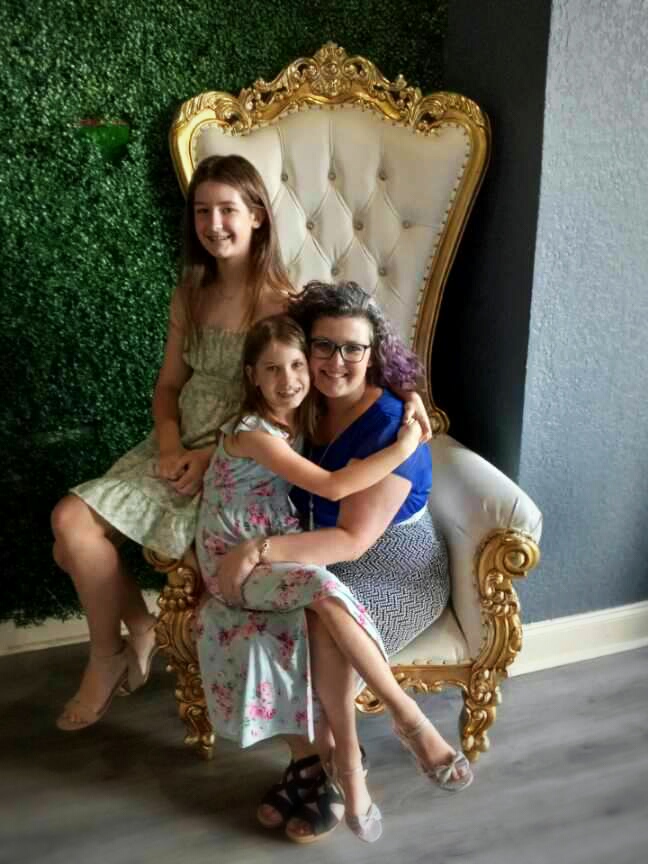Grandma always said "Idle hands are the Devil's workshop" and I, for one, agree! Active engagement of our children is an excellent behavior reduction technique. When children are not actively engaged they can get into a world of trouble. Keeping them actively engaged in preferred activities can go a long way in avoiding problem behaviors. While independent play is an important skill for children to learn, it also gives parents and teachers an excuse to not actively supervise. This lack of active supervision (a key component for active engagement) can often lead to children engaging in problem behaviors.
Take, for example, when you leave your toddler or preschooler in the living room while you are cooking dinner in the kitchen. You may initially set them up with activities (coloring, puzzles, books, etc.) and walk away. Since you are cooking dinner, your full attention is not on your child. The next thing you know, your child has colored on the wall! In my daughter's words (hands on cheeks) "Ah nah!"
A classroom example might look like this: You have instructed your Kindergarteners to play freely (i.e. "free play") prior to morning instruction. While your students are engaged in "free play", you continue to plan the morning lesson. Your can see and hear all of your students; however, your full attention is not focused on the children. The next thing you know, someone is crying. Why? Because they are Kindergarteners and when left to their own devices they will likely not engage in sharing behaviors (or a multitude of other behaviors). The likely scenario? Someone took someone else's toy resulting in that someone hitting the offending child who is now crying.
ACTIVE ENGAGEMENT! Yes, it requires much more from us as parents and teachers. But it also reduces the chances for our children to engage in problem behaviors. With active engagement, we can stop the behaviors before they start and teach appropriate behaviors in the moment.
Applied Behavior Analysis (ABA) is most notably used in the treatment of children with Autism Spectrum Disorders. But in truth, ALL children experience problem behaviors at some point in their lives - from the “terrible twos” to the rebellious teen years. This blog is designed to provide an overview of ABA and how it can be a useful tool for typically developing children, teenagers, and even your husband;)
Subscribe to:
Post Comments (Atom)

So how do children discover and create new things on their own? Is it more of a let them play by themselves but actively be watching (although not necessarily engaged)? Or are you recommending active engagement to decrease behavioral problems that have already occurred?
ReplyDeleteI mentioned that independent play is a good skill for children to learn - and it sure is a nice break for mommy and daddy! But, when you have children that often engage in problem behaviors, I recommend more active engagement (actively playing with and supervising play behavior) than independent play. Often, independent play will set these kids up for getting into trouble - one way or another. If your child has good independent play skills (without getting into trouble) then this post isn't for you.
ReplyDeleteWhile you are actively playing with your children, your goal should be teaching them skills that they will eventually use during independent play. Over time, you'll see yourself fading out of the play situations - rather than being actively engaged in play you will instead be actively supervising. Eventually, your child will be playing independently AND staying out of trouble:D
Thanks for the clarification. My daughter does fairly well playing on her own - I just wanted to make sure that I wasn't doing her a disservice by not being involved all the time. Of course, she could have used a little more involvement the morning she woke up before my husband and myself, got into her markers, and colored all over her hands and face (the parts not covered by her pajamas).
ReplyDeleteYou are certainly not doing her a disservice! Playing independently is a skill she will need in life -noone is ever supervised or played with 100% of the time. Could you imagine?! We would never get to experience things like coloring on the walls and their bodies;) Ha! That would be a shame - I mean after you get over the initial shock and realize the humor. Kids will be kids!
ReplyDelete